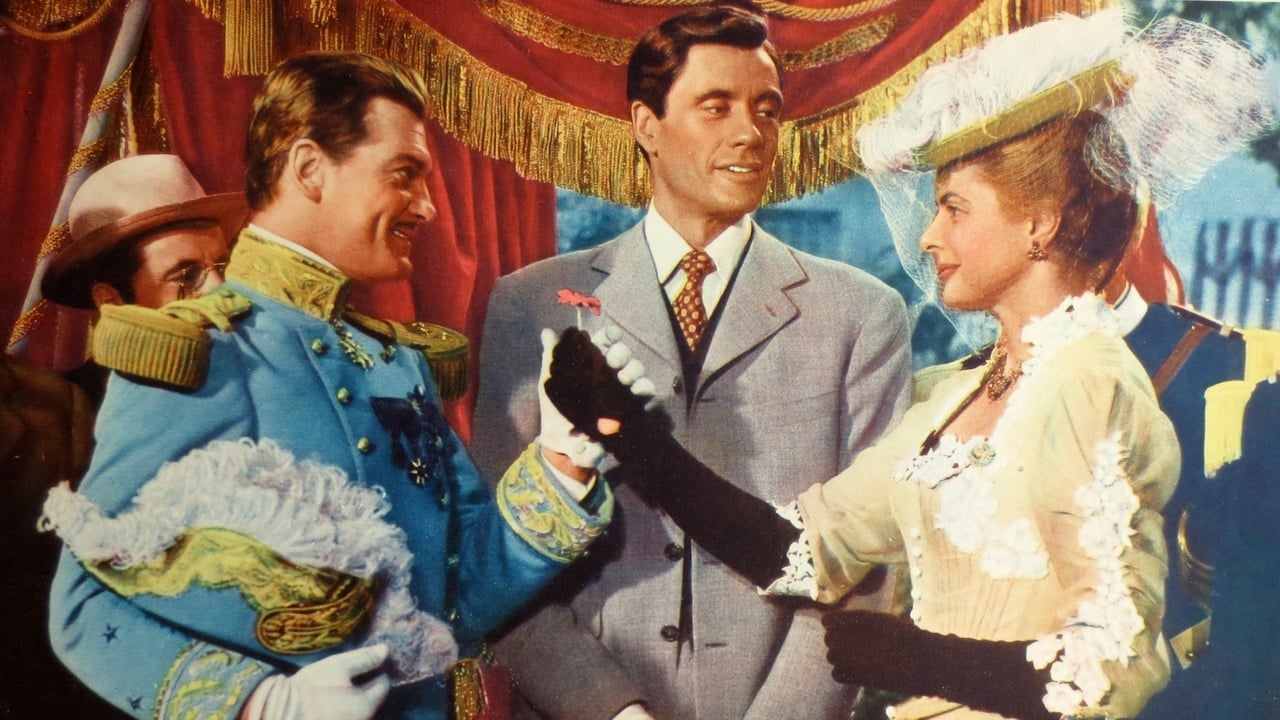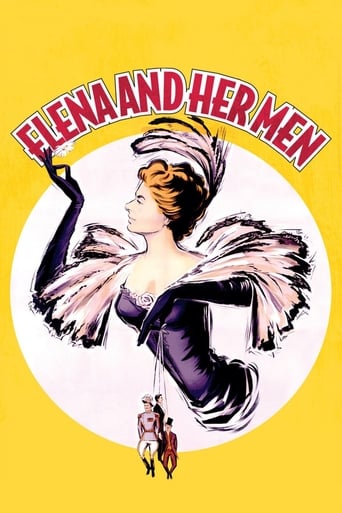

In the end of the Nineteenth Century, on the July 14th Celebration in Paris, the broken widow Polish Princess Elena Sokorowska (Ingrid Bergman) meets the bon-vivant Henri de Chevincourt (Mel Ferrer) on the streets. Henri introduces his friend General François Rollan (Jean Marais), who is a national hero. Elena has sold all her pearls and needs to get married to keep her lifestyle. Elena involves with a group of politicians that intend to promote the general to the presidency of France supported by the people. Rollan and Henti fall in love for Elena and dispute her love."Elena et les Homes" is a dull romance in a political environment in France that is homage to love and the French way of life. Ingrid Bergman shines with her beauty performing a likable character. The bright colors highlight the art decoration, with colorful sets and costumes. This movie was released in Brazil on VHS by Mundial Filmes Distributor. My vote is six.Title (Brazil): "As Estranhas Coisas de Paris" ("The Strange Things of Paris")
... View MoreAfter watching two of his silent shorts, 'Elena and her Men (1956)' is my first feature-length film from French director Jean Renoir, and I quite enjoyed it. However, I didn't watch the film for Renoir, but for star Ingrid Bergman, who at age 41 still radiated unsurpassed beauty, elegance and charm. Throughout the early 1950s, following her scandalous marriage to Italian Roberto Rossellini, Bergman temporarily fell out of public favour. Her next five films, directed by her husband, were unsuccessful in the United States, and I suspect that Renoir's latest release did little to enhance Bergman's popularity with English-speaking audiences {however, she did regain her former success with an Oscar in the same year's 'Anastasia (1956)'}. She stars as Elena Sokorowska, a Polish princess who sees herself as a guardian angel of sorts, bringing success and recognition to promising men everywhere, before promptly abandoning them. While working her lucky charms to aid the political aspirations of the distinguished General Francois Rollan (Jean Marais), she finds herself falling into a love that she won't be able to walk away from. This vaguely-political film works well as either a satire or a romantic comedy, as long as you don't take it too seriously; it's purely lighthearted romantic fluff.Filmed in vibrant Technicolor, 'Elena and her Men' looks terrific as well, a flurry of bright colours, characters and costumes. Bergman's Polish princess is dreamy and somewhat self-absorbed, not in an unlikable way, but hardly a woman of high principles and convictions. She is persuaded by a team of bumbling government conspirators to convince General Rollan to stage a coup d'état, knowingly exploiting his love for her in order to satisfy her own delusions as a "guardian angel." Perhaps the film's only legitimately virtuous character is Henri de Chevincourt (Mel Ferrer, then Audrey Hepburn's husband), who ignores everybody else's selfish secondary motives and pursues Elena for love, and love alone. This, Renoir proudly suggests, is what the true French do best. 'Elena and her Men' also attempts, with moderate success, to expose the superficiality of upper-class French liaisons, through the clumsy philandering of Eugène (Jacques Jouanneau), who can't make love to his servant mistress without his fiancè walking in on them. For these sequences, Renoir was obviously trying for the madcap sort of humour that you might find in a Marx Brothers film, but the film itself is so relaxed and laid-back that the energy just isn't there.
... View MoreThe first half hour or so of this movie I liked. The obvious budding romance between Ingrid Bergman and Mel Ferrer was cute to watch and I wanted to see the inevitable happen between them. However, once the action switched to the home of Ingrid's fiancé, it all completely fell apart. Instead of romance and charm, we see some excruciatingly dopey parallel characters emerge who ruin the film. The fiancé's boorish son and the military attaché's vying for the maid's attention looked stupid--sort of like a subplot from an old Love Boat episode. How the charm and elegance of the first portion of the film can give way to dopiness is beyond me. This film is an obvious attempt by Renoir to recapture the success he had with THE RULES OF THE GAME, as the movie is very similar once the action switches to the country estate (just as in the other film). I was not a huge fan of THE RULES OF THE GAME, but ELENA AND HER MEN had me appreciating the artistry and nuances of the original film.
... View MoreJean Renoir once told he wanted to make this movie to see Ingrid Bergman smile to the camera. This is the strength and the limit of Elena et les hommes. Ingrid Bergman smiles, living buoyantly in this colorful political farce. She and every other character involved goes nowhere. Hence the movie can be seen as a light series of social shafts of wit, something Renoir has always been good at showcasing. He delivers this, his nephew delivers a really nice cinematography but on the whole it looks artificial and vain.Not a great movie so, but it's always a pleasure to see Bergman smile.
... View More